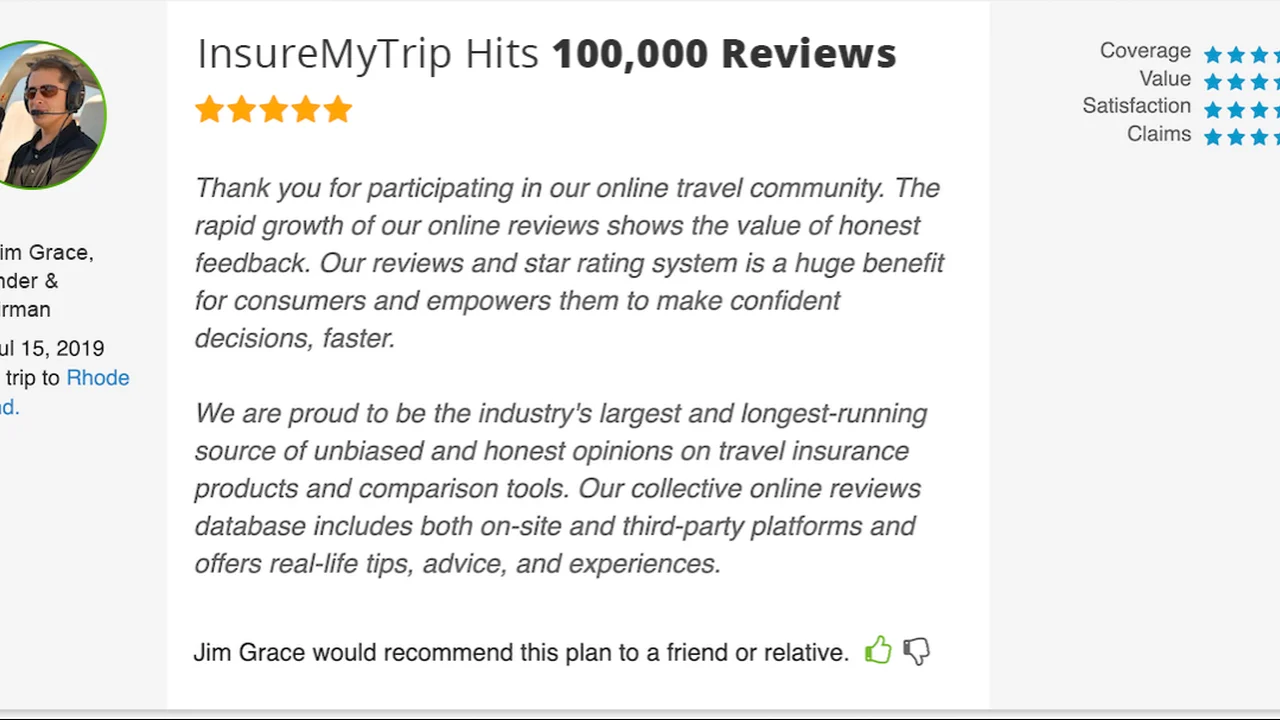Travel Insurance for Pre-Existing Conditions: Options & Tips

Understanding Travel Insurance for Pre-Existing Conditions What You Need to Know
Traveling with a pre-existing condition can be a bit nerve-wracking, especially when it comes to health concerns. Will you be covered if something unexpected happens? That's where travel insurance comes in, but navigating the world of pre-existing conditions can feel like deciphering a whole new language. Don't worry, we're here to break it down for you in plain English (or, well, plain HTML!).
First things first, what exactly *is* a pre-existing condition? Generally, it's any health issue you've been diagnosed with or treated for *before* you purchase your travel insurance policy. This could be anything from diabetes and heart conditions to asthma, allergies, or even high blood pressure. Insurers look at these conditions because they might increase the likelihood of you needing medical attention while you're traveling.
Pre-Existing Condition Travel Insurance Policy Coverage Options Explained
Now, the million-dollar question: will travel insurance cover your pre-existing condition? The answer is... it depends! Many standard travel insurance policies have exclusions for pre-existing conditions. This means they won't cover any medical expenses related to that condition if you need treatment while you're away. However, there are options! You'll typically find a few different approaches:
- Exclusion Waivers: Some policies offer a waiver of the pre-existing condition exclusion, but this usually comes with specific requirements. You'll often need to purchase the policy within a certain timeframe of booking your trip (usually within 14-21 days), be medically fit to travel at the time of purchase, and insure the full cost of your trip. Read the fine print carefully!
- Look-Back Period: Other policies use a "look-back period." This means they'll only consider conditions that were treated or diagnosed within a certain timeframe (like 60, 90, or 180 days) before you bought the policy. If your condition is stable and hasn't required treatment within that period, it might be covered.
- Specialized Pre-Existing Condition Policies: Finally, some insurers specialize in policies specifically designed for travelers with pre-existing conditions. These policies tend to be more expensive, but they offer broader coverage and greater peace of mind.
Choosing the Right Travel Insurance for Your Pre-Existing Condition A Step-by-Step Guide
Okay, so how do you choose the right policy? Here's a step-by-step guide:
- Be Honest and Thorough: When you're getting a quote, be completely honest about your medical history. Don't try to hide anything, as this could invalidate your policy later on. Provide accurate details about your diagnoses, medications, and any recent treatments.
- Compare Quotes: Don't just go with the first policy you find. Get quotes from multiple insurers and compare the coverage, exclusions, and premiums. Pay close attention to the pre-existing condition clauses.
- Read the Policy Wording: This is crucial! Don't just rely on the summary. Read the full policy wording carefully to understand exactly what is and isn't covered. If you have any questions, contact the insurer for clarification.
- Consider Your Destination: The healthcare costs in some countries are significantly higher than in others. Make sure your policy provides adequate coverage for the country you're visiting.
- Think About Your Activities: Are you planning on doing any adventurous activities like hiking, scuba diving, or skiing? Some policies exclude certain activities, so make sure you're covered for everything you plan to do.
Travel Insurance Product Recommendations for Pre-Existing Conditions and Use Cases
Alright, let's get down to some specific product recommendations. Keep in mind that prices and coverage can change, so always check the latest information directly with the insurer.
- World Nomads Explorer Plan: While World Nomads doesn't explicitly cater *only* to pre-existing conditions, their Explorer Plan offers broader coverage for adventure activities and can be a good option if your condition is stable and well-managed. Use Case: Ideal for active travelers with well-controlled conditions who are planning on participating in outdoor adventures. Comparison: More expensive than basic plans, but offers significantly better coverage for activities. Price: Varies depending on age, destination, and trip length, but expect to pay around $100-$300 for a two-week trip.
- Allianz Global Assistance: Allianz offers a range of plans, and some of their comprehensive plans may offer waivers for pre-existing conditions if you meet specific eligibility requirements (like purchasing the policy within a certain timeframe). Use Case: Good for travelers who book their trips well in advance and want a comprehensive policy with potential pre-existing condition coverage. Comparison: Offers a balance of price and coverage. Price: Starts around $80 for a two-week trip, but can be higher depending on the plan and your individual circumstances.
- Travel Guard: Travel Guard also offers various plans, and some may include coverage for pre-existing conditions if you meet their eligibility criteria. Check their specific "Medical Coverage" sections carefully. Use Case: Suitable for travelers looking for customizable coverage options and 24/7 assistance. Comparison: Known for their customer service. Price: Similar to Allianz, ranging from $80-$250+ for a two-week trip.
- InsureMyTrip: This isn't an insurer itself, but rather a comparison website that allows you to compare policies from multiple providers side-by-side. It's a great way to see all your options and find the best coverage for your specific needs. Use Case: Excellent for quickly comparing multiple policies and finding the best deal. Comparison: Not a direct insurer, but a valuable tool for research. Price: Free to use!
Understanding Policy Exclusions and Limitations for Pre-Existing Conditions
Even with a policy that covers pre-existing conditions, it's essential to understand the exclusions and limitations. Common exclusions include:
- Unstable Conditions: If your condition is unstable or requires ongoing treatment in the weeks leading up to your trip, it might not be covered.
- Traveling Against Medical Advice: If your doctor advises you not to travel, your insurance policy likely won't cover any medical expenses related to your condition.
- Scheduled Treatment: Travel insurance is designed to cover unexpected medical emergencies, not pre-planned treatments or procedures.
Tips for Traveling Safely and Managing Your Pre-Existing Condition Abroad
Beyond insurance, here are some tips for traveling safely with a pre-existing condition:
- Talk to Your Doctor: Before you travel, talk to your doctor about your travel plans and any potential risks. Get their advice on managing your condition while you're away.
- Carry a Medical Summary: Bring a written summary of your medical history, including diagnoses, medications, allergies, and emergency contact information.
- Pack Enough Medication: Pack enough medication to last for the entire trip, plus a few extra days in case of delays. Keep your medication in its original packaging and carry a copy of your prescription.
- Research Local Healthcare: Before you travel, research the local healthcare system in your destination. Find out where the nearest hospitals and clinics are located.
- Learn Some Basic Phrases: Learn some basic phrases in the local language to explain your condition and ask for help.
- Listen to Your Body: Don't push yourself too hard, and take breaks when you need to. Be aware of your limitations and avoid activities that could aggravate your condition.
The Importance of Declaring Your Pre-Existing Conditions When Buying Travel Insurance
Declaring your pre-existing conditions is absolutely crucial. Failure to do so could invalidate your policy, leaving you responsible for all medical expenses if something goes wrong. Insurance companies often have access to your medical records, and they can deny coverage if they discover you've withheld information. Honesty is always the best policy!
Travel Insurance Claims Process for Pre-Existing Conditions How to File Successfully
If you do need to file a claim related to your pre-existing condition, here are some tips for a successful claim:
- Contact the Insurer Immediately: As soon as you need medical attention, contact your insurance company's emergency assistance line. They can provide guidance and help you find a suitable medical facility.
- Keep Detailed Records: Keep copies of all medical bills, receipts, and reports.
- Follow the Instructions: Follow the insurer's instructions carefully when filing your claim. Provide all the required documentation and answer any questions they may have.
- Be Patient: The claims process can take time, so be patient and follow up with the insurer if you haven't heard back within a reasonable timeframe.
Frequently Asked Questions About Travel Insurance and Pre-Existing Conditions
Here are some frequently asked questions about travel insurance and pre-existing conditions:
- Q: Will travel insurance cover my diabetes? A: It depends on the policy and whether your diabetes is well-controlled. Some policies offer coverage, while others exclude it.
- Q: What if I have a heart condition? A: Similar to diabetes, coverage for heart conditions varies. Look for policies that offer waivers or specialized coverage.
- Q: Can I get travel insurance if I'm pregnant? A: Yes, but most policies only cover pregnancy-related complications up to a certain point in your pregnancy.
- Q: How much does travel insurance for pre-existing conditions cost? A: It's generally more expensive than standard travel insurance due to the increased risk.
Real-Life Scenarios How Travel Insurance Can Help with Pre-Existing Conditions
Let's look at some real-life scenarios:
- Scenario 1: A traveler with asthma experiences a severe asthma attack while hiking in the mountains. Their travel insurance policy covers the cost of emergency medical treatment and hospitalization.
- Scenario 2: A traveler with a heart condition experiences chest pain while on vacation. Their travel insurance policy covers the cost of a cardiac evaluation and any necessary treatment.
- Scenario 3: A traveler with diabetes develops a serious infection while traveling. Their travel insurance policy covers the cost of antibiotics and other medical care.
:max_bytes(150000):strip_icc()/277019-baked-pork-chops-with-cream-of-mushroom-soup-DDMFS-beauty-4x3-BG-7505-5762b731cf30447d9cbbbbbf387beafa.jpg)






